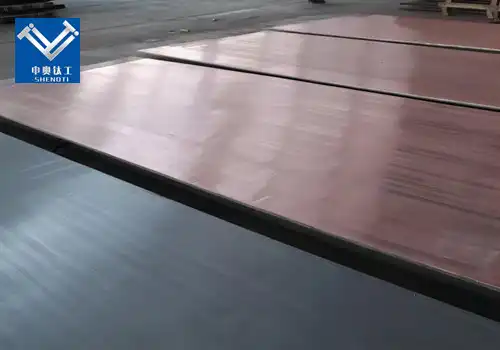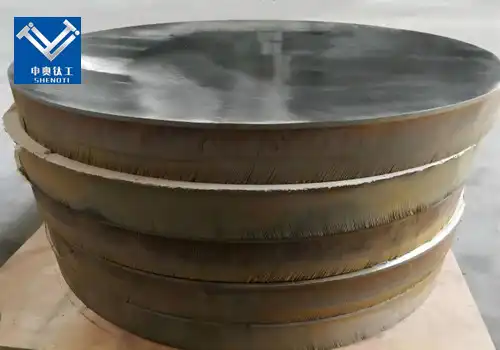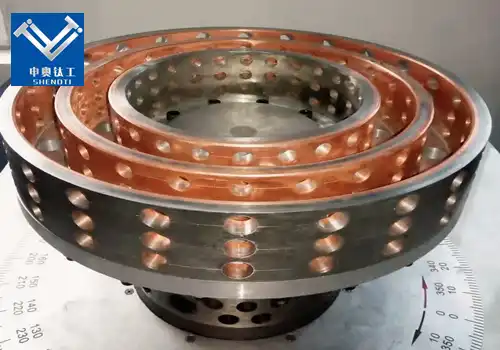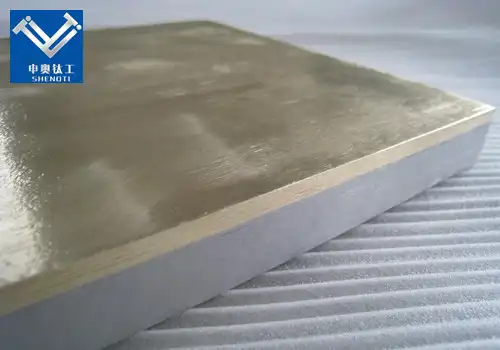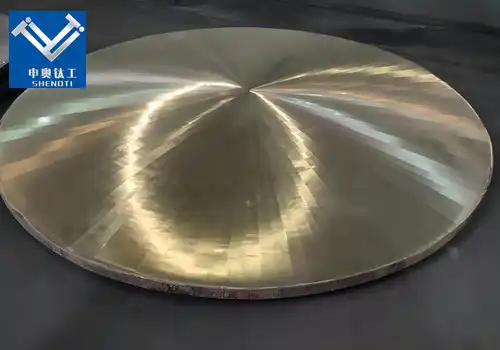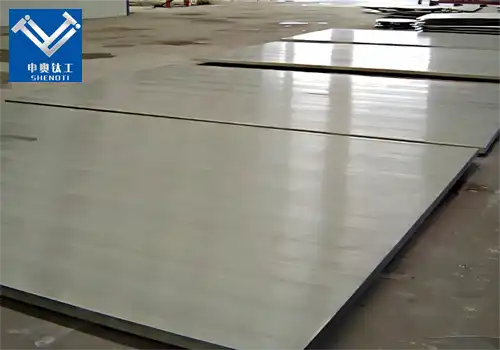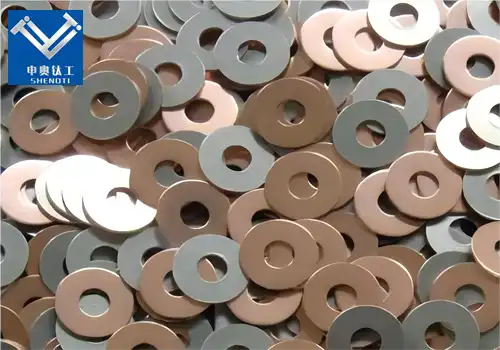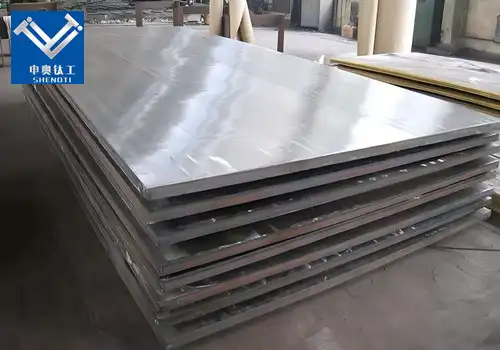
How to Select the Right Titanium Copper Clad Plate?
2025-07-09 14:51:18
What is a Titanium Copper Clad Plate?
Understanding Clad Metal Technology
Clad metal plates are made by bonding two or more dissimilar metals together to create a composite material with enhanced performance. In the case of titanium copper clad plate, titanium serves as the corrosion-resistant outer layer, while copper provides excellent electrical and thermal conductivity.
This synergy of metal properties offers the durability of titanium with the high conductivity of copper, making it ideal for demanding industrial applications.
Typical Structure of Titanium Copper Clad Plate
A titanium copper clad plate usually features a titanium layer (grade 1 or grade 2) on one or both sides of a copper core (commonly TU1, T2, or C11000). The bonding process ensures metallurgical adhesion between layers, resulting in a product that behaves as a single, high-performance unit.
How Are Titanium Copper Clad Plates Manufactured?
Explosive Bonding Technology
One of the most effective methods for producing titanium copper clad plates is explosive welding. This solid-state bonding technique uses a controlled detonation to drive titanium and copper together at high velocity, creating a high-energy impact zone that forms an atomic-level bond between the metals.
Advantages of explosive bonding for titanium copper clad plate production include:
Strong metallurgical bonding without melting the base metals
Minimal distortion and heat-affected zones
Capability to join metals with significantly different melting points
Alternative Manufacturing Techniques
While explosive welding is the most common method, other techniques such as hot rolling bonding, diffusion bonding, or electron beam welding may also be used, depending on the application and material requirements.
Applications of Titanium Copper Clad Plates
Electrolytic and Electrochemical Equipment
In electrolytic cells and electrochemical reactors, titanium copper clad plates are used to manufacture anode and cathode components due to their dual benefits:
Copper ensures excellent electrical conductivity
Titanium provides superior corrosion resistance against acid or salt media
This makes them ideal for use in:
Electroplating
Electrolysis of non-ferrous metals
Production of chlor-alkali compounds
Power and Energy Industry
In power transmission and distribution, titanium copper clad plates are applied in:
Busbars for substations and energy storage systems
Transition joints in nuclear power plants
Cathodic protection systems in oil and gas pipelines
Their electrical performance and corrosion resistance reduce energy loss and extend service life.
Marine and Offshore Engineering
Offshore platforms, ships, and underwater structures are constantly exposed to corrosive seawater. Titanium copper clad plates are used in structural components, piping systems, and electrical equipment exposed to marine conditions. They resist biofouling, corrosion, and electrochemical degradation.
Chemical and Petrochemical Processing
Many chemical processes involve strong acids, chlorides, or oxidizing agents. Titanium copper clad materials are utilized in reactors, heat exchangers, and tanks due to their ability to withstand corrosive environments while maintaining conductivity for thermal or electrochemical purposes.
Why Choose Titanium Copper Clad Plate?
High Corrosion Resistance
Titanium is renowned for its resistance to corrosion in aggressive media like hydrochloric acid, sulfuric acid, and seawater. Cladding copper with titanium significantly enhances the lifespan of conductive components exposed to such environments.
Excellent Conductivity
Copper is one of the most conductive metals. By using copper as the core layer, the titanium copper clad plate ensures minimal resistance in electrical and thermal applications while remaining corrosion resistant on the surface.
Strong Metallurgical Bonding
The explosive bonding technique results in a high-strength bond that can withstand mechanical stress, pressure fluctuations, and thermal cycling. This makes titanium copper clad plate suitable for high-performance, high-reliability environments.
Cost Efficiency
Compared to solid titanium components, titanium copper clad plates are more affordable. You get the necessary corrosion resistance without the expense of full titanium parts, resulting in better cost-performance ratio.
Lightweight and Formable
Despite its layered structure, titanium copper clad plate is relatively light and easy to fabricate. It can be cut, drilled, or welded using conventional metalworking techniques.
Industry Standards and Certifications
A reliable titanium copper clad plate supplier should adhere to international manufacturing and testing standards, such as:
ASTM B898 (Specification for Reactive and Refractory Metal Clad Plate)
GB/T 8547 (Chinese standard for explosive clad metal materials)
ISO 9001:2015 Quality Management System
SGS, BV or TUV third-party inspection reports
These standards ensure consistent quality and performance, making the material suitable for critical engineering projects worldwide.
While titanium stainless clad offers strong mechanical integrity, it lacks the high conductivity of copper. Similarly, copper aluminum clad is economical but not ideal for corrosive environments. Titanium copper clad plate strikes a perfect balance between corrosion resistance and conductivity.
How to Select the Right Titanium Copper Clad Plate?
Define Application Requirements
Before selecting a titanium copper clad plate, identify:
Type of corrosive environment (acidic, marine, oxidizing)
Required electrical or thermal conductivity
Plate thickness and size
Mechanical load and pressure requirements
Choose the Right Grades
Titanium Grade 1: Soft and highly formable; suitable for cold forming
Titanium Grade 2: Stronger and more corrosion-resistant; suitable for pressure vessels
Copper T2 or TU1: High-purity copper with excellent electrical properties
Work with a Certified Manufacturer
Ensure your supplier has:
In-house explosive bonding or hot-rolling capabilities
CNC cutting, surface treatment, and welding facilities
Full documentation and third-party inspection reports
Experience with export procedures and packaging for overseas delivery
Why Invest in Titanium Copper Clad Plate Today?
The titanium copper clad plate stands out as an exceptional material solution that blends the best of titanium and copper: high conductivity, corrosion resistance, strength, and economic efficiency. It plays a vital role in the next generation of industrial innovation, from electrolysis to energy infrastructure.
Whether you’re designing equipment for marine environments, chemical reactors, or energy distribution systems, choosing titanium copper clad plates ensures performance, reliability, and long-term value.
About Us
Baoji City ShenAo Metal Materials Co., Ltd. specializes in manufacturing high-quality titanium copper clad plates, using advanced explosive bonding and hot rolling technologies. With decades of expertise, certified facilities, and a global customer base, we are committed to delivering reliable bimetallic solutions tailored to your industrial needs.
Contact Us
For more information or to request a quote for titanium copper clad plates, contact us:
Email: zh@baojiti.com.cn
Website: www.shenaocladplate.com
Address: Baoji City, Shaanxi Province, China
YOU MAY LIKE











